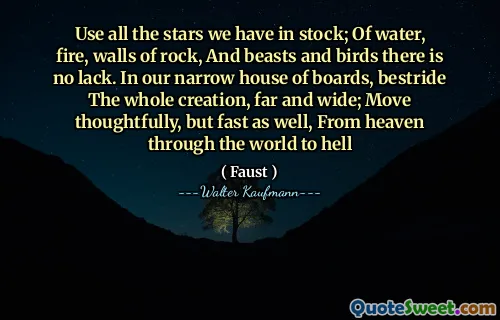Johann Wolfgang von Goethe's "Faust" is a cornerstone of German literature, reflecting profound themes of ambition, desire, and the human condition. The story follows Heinrich Faust, a scholar who is dissatisfied with his life and seeks greater meaning beyond traditional knowledge. In his quest for fulfillment, he becomes entangled with Mephistopheles, a representation of the devil, who offers to fulfill Faust's worldly desires in exchange for his soul.
The narrative unfolds as Faust experiences both ecstasy and despair, exploring a range of human experiences, from love and ambition to despair and regret. His relationship with Gretchen, a young woman he seduces and ultimately destroys, underscores the tragic consequences of his quest for ultimate knowledge and pleasure, highlighting the moral complexities of his character.
More »
Today Birthdays
1970 -
Shonda Rhimes
1599 -
Edmund Spenser
1940 -
Edmund White
1957 -
Lorrie Moore
1691 -
George Fox
1961 -
Wayne Coyne
1934 -
Carolyn See
1965 -
Bill Bailey
1967 -
Masha Gessen
1937 -
George Reisman
1890 -
Elmer Davis
1978 -
Nate Silver
1884 -
Sophie Tucker
1960 -
Matthew Bourne
1980 -
Maria de Villota
1977 -
Orlando Bloom
1976 -
Michael Pena
1952 -
Geoffrey Canada
1951 -
Frank Peretti
1955 -
Trevor Rabin
1808 -
Salmon P. Chase
1947 -
Robert Martin
1927 -
Sydney Brenner
1926 -
Carolyn Gold Heilbrun
1954 -
Denise Morrison
1960 -
Eric Betzig
1968 -
Traci Bingham
1919 -
Robert Stack
1970 -
Keith Coogan
1989 -
Beau Mirchoff
